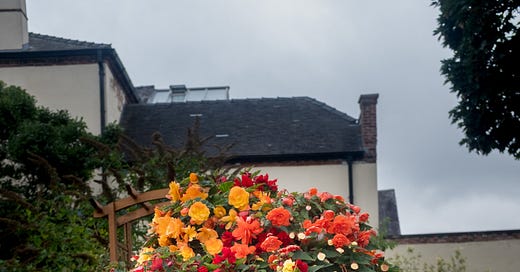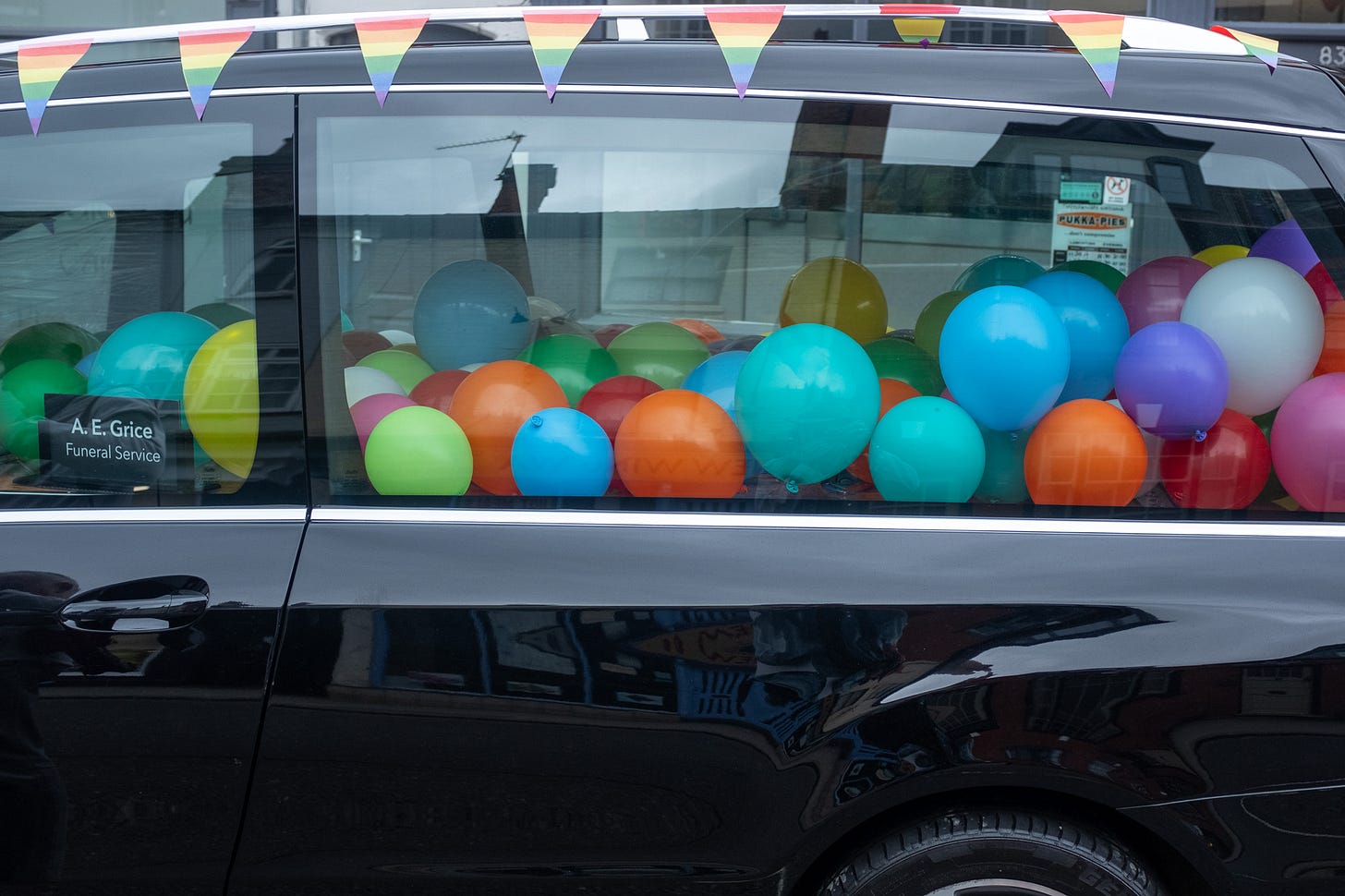Charlie had done three tours of Ukraine as a medic. Back when the war was early on. I was sitting in the back seat and he was speaking over his shoulder. Leicestershire looked quiet and peaceful beyond the window. ‘What was it like?’ I asked.
‘War’s not pretty,’ was his response.
The corruption was what shocked him most. The way there were businesses signing up young men. ‘These were people like you,’ he said, glancing at me through the mirror, ‘They had no experience of fighting. Regular people, bankers, accountants and so on. People with no comprehension of what a bullet or a piece of shrapnel does to a body.
‘Soldiers need three months of training at least,’ he continued, ‘That’s what they’d get in the UK. These guys were getting three weeks. It’s nothing.’ Then they’d be sent to the front. Often to their deaths. The recruitment process was rotten. If you could pay enough you could dodge the draft. Those who were genuinely disabled would have to pay the official or risk being recruited. At every level people were taking cuts Charlie said.
Charlie refused to sign contracts and worked for free. He began in Lviv in the west and moved east to Bucha. ‘After the atrocities,’ he said. Then he went to Kharkiv. It was hard work and he saw terrible things. One time, the Ukrainians captured a young Russian boy, a soldier if you could call him that. ‘I didn’t stay around but I heard the screams.’
We were driving away from Fenny Drayton in the heart of England. Where Staffordshire, Leicestershire, Warwickshire and Derbyshire all collide. A long time ago, it had witnessed its own war. Across the corn-yellow fields, warm and dry from summer, we could see a small ridge where the army of Richard III had lined up and faced down on Henry Tudor. The numbers at the Battle of Bosworth were tiny compared to those in Ukraine. It was over far more quickly too - by noon.
In those days, kings charged one another, shed their crowns on thorn bushes and gave their kingdoms for a horse. As the battle raged, Richard made for Henry Tudor himself. ‘Slave I have set my life upon a cast,’ he moaned when the bid failed, according to Shakespeare at least. A witness had him down as saying ‘God forbid that I retreat one step. I will either win the battle as a king, or die as one!’ It was hard to imagine Putin, seated behind his huge table, as long as a small ship, doing anything like that.
The hedgerows, bristling unkempt, blurred past the windows as we drove.
‘You’d get people turning up from the West saying they were ex-Para,’ Charlie continued, ‘You’d talk to them for a couple of minutes and you’d be like ‘You’re ex fuck all mate. Where’s Brize Norton then? What’s your service number? You’ve just played Medal of Honour on your Xbox.’ They were turning up trying to give us their expertise and they’d get themselves killed in five minutes.’
I told Charlie about the tank driver who picked me up in Wales once—in a car, not a tank I clarified. He was thinking about going over to fight. He’d seen the videos of the war crimes Russians were committing, phosphorescent bombing of schools and the like. In the army they call the overbearing urge to fight ‘getting gunny’. He knew several people who’d got gunny and gone. A friend of his sergeant had been killed. Some Estonians he’d trained with went too. They crashed on the way and all 8 had died.
Charlie had helped some Ukrainians escape to the UK. A friend had asked him to look after his family if he was drafted and killed. ‘I said fuck it, come with me.’ Nevertheless, he thought the UK needn’t have taken as many Ukrainians as it did. In his opinion, the west of Ukraine was far enough from the front to absorb most of the refugees.
‘Would you go back?’ I asked.
‘No, it’s got too dirty.’
We were coming into Ashby-de-la-Zouch. Cyclists in hi-vis jackets were wheeling past cheerfully and the traffic was slow. Charlie dropped me near the town centre where the roads were cordoned off with cones. Bright balloons leant a splash of colour to the otherwise dour day.
I discovered it was Ashby Pride. It was still early and hadn’t begun just yet. I walked along the high street and enjoyed the scene. Sound engineers crouched on the large stage at the bottom of the hill, their tool belts swinging on their hips as they hopped over wires. A man with a bulging belly filmed himself on his iPhone, introducing the scene for some following somewhere.
Past the merry-go-rounds not yet going round, I came to the row of stalls on the high street, sheltering from the light drizzle under gazebos. They were hung with colourful bunting that ran jauntily up the whole street, fluttering gently in the breeze. Some were selling rainbow-themed nick nacks, fans, hats and flags, others random wares and foods. Charities and local sports clubs were raising money and a slender polished hurse was parked at one end, its back full of rainbow balloons and an advert for the undertakers.
People were beginning to arrive slowly with smiles and painted faces, lollipops and laughs. I watched them for a while enjoying themselves and the uplifting affair. A small town come together to celebrate. But it wasn’t just Pride they were celebrating I realised. Even if they didn’t know it, they were celebrating the peace we take for granted.






Really good
I love the way you connect the contemporary with the historical - transitioning from present day Ukraine to the Battle of Bosworth. And then such a weird and striking image of an undertaker's hearse full of multi-coloured balloons.